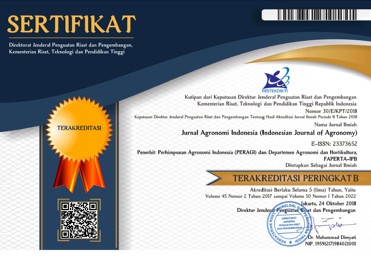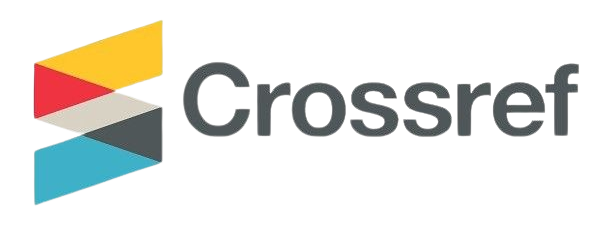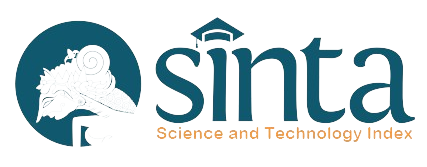Pengaruh Pemberian Kapur dan Kompos Sisa Tanaman terhadap Aluminium Dapat Ditukar dan Produksi Tanaman Kedelai pada Tanah Vertic Hapludult dari Gajrug, Banten
Abstract
Ultisol is a soil type with the widest distribution in Indonesia. However, ultisol is characterized with acid reaction and low content of organic matter and nutrients. Ultisol contains a high concentration of Al at a level that can interfere plant growth. The objective of this study was to evaluate the effect of lime and crop residue composts application on the activities of exch-Al and the soybean yield. A greenhouse experiment using Vertic Hapludult from Gajrug, Banten was conducted in a completely randomized design. Liming treatments with 0.0 and 20.7 tons/ha (equals to 1x exch-Al) were combined with the application of different crop residue compost from upland rice, corn, soybean and peanut. The dose of the compost at 0, 1 and 2% organic-C. In this study, soybean was used as the indicator plant. The results of this experiment indicated that the application of lime equal 1x exch-Al significantly decreased exch-Al and resulted in good plant growth and soybean yield. Application of different types of crop residue compost decreased exch-Al. On the unlimed and limed soils the application of upland rice residue compost at dose of 2% organic-C (D2) increased soybean yield (23.21 g/pot and 25.67 g/pot), 72.53% and 1.87% respectively.
Key words : Liming, crop residue compost, exchangeable aluminum (exch-Al), soybean













